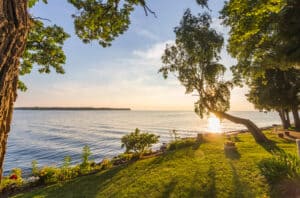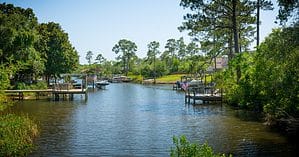When it comes to the coldest state in America, it should be no surprise that it has tons of lakes that freeze in winter. Alaska has averages of 40°F to 60°F in the summer, getting down to 0°F to -30°F in the winter. The cold temperatures and the lack of sunshine make for a freezing combination.
It’s worth noting that not all lakes in Alaska freeze over completely. Larger lakes like Iliamna, Becharof, Teshekpuk, and Kenai get icy in the winter but don’t always freeze completely. It depends on the year, how cold the summers and winters are, and how quickly the temperature drops.
While Alaska has around 3,000 named lakes, the total number of lakes in the state is over 3 million! Lakes are a big part of the culture and recreational fun in Alaska. It’s important to know which lakes freeze over each winter for ice fishing and other activities. Walking or driving on lakes that aren’t completely frozen is dangerous. We’re covering the six lakes in Alaska that completely freeze over in winter each year, where they are, and what to do nearby.
Campbell Lake
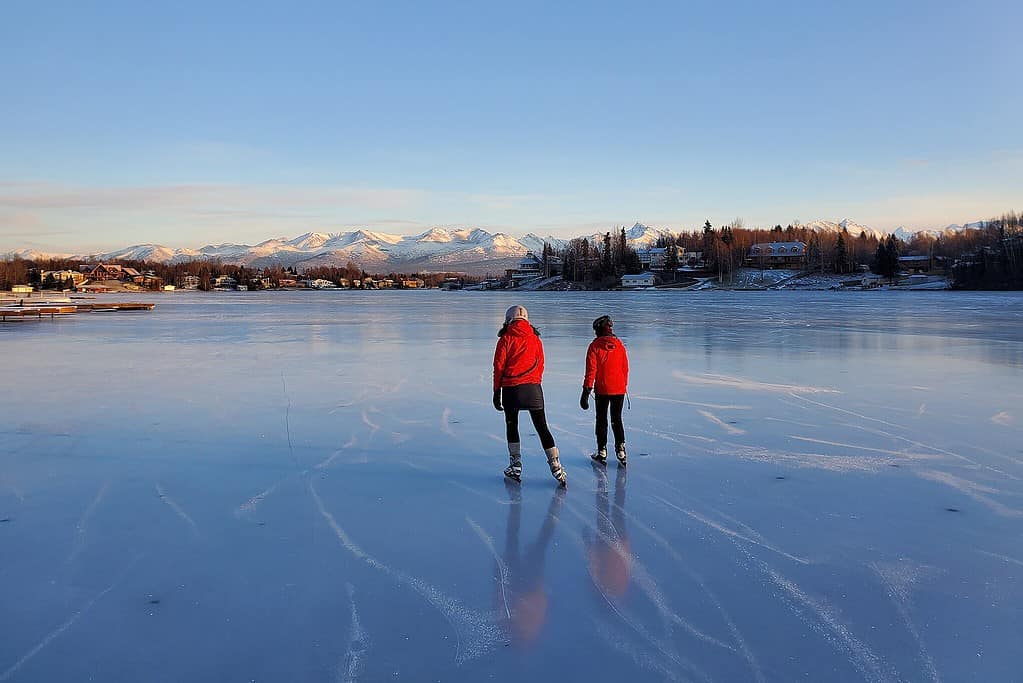
For a long time, Campbell Lake was considered to be private until it was ruled as open to the public for all types of recreation, including ice skating in 2019.
© – License
This small lake is only 123 acres and sits in the southern city of Anchorage. Campbell Lake freezes and thaws every year, often multiple times before its final freeze. This year, Campbell Lake froze over November 23-24. One of the residents, Ron Eggan, noted that the lake was smooth and ‘95% frozen’ in early December, according to Brookings Register, a local newspaper. Each year, the date is different, but I wouldn’t count on it being frozen through for good until late December or early January.
Campbell Lake is interesting because getting to the lake requires crossing over private land. However, the lake itself is technically state-owned, public property. This has left residents with quite a bit of frustration because people who live nearby cannot access the lake. The people who live on the lake claim it as a ‘private lake’, but there is a small easement that provides access through private property. As of October 2023, the state of Alaska has filed a lawsuit to confirm the existence of a public access right-of-way to Campbell Lake. The decision will help end disputes over lake access between the public and landowners on Campbell Lake.
Teshekpuk Lake
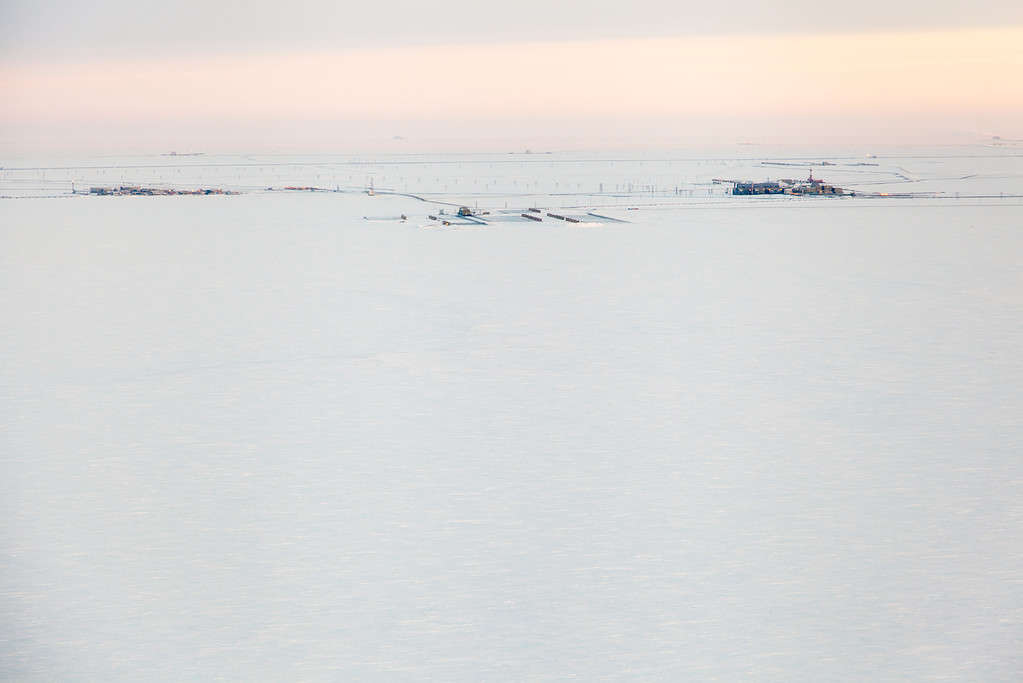
This lake is hard to access because it lies inside the National Petroleum Reserve, and temperatures are usually very cold.
©Incomel/iStock via Getty Images
Teshekpuk Lake is a thermokarst lake, a body of water that is recharged and refilled by melting permafrost. This lake is one of the largest thermokarst lakes in the world at 22 miles. It’s located in northern Alaska in the National Petroleum Reserve. Since it’s a shallow lake, it freezes through easily. Unfortunately, because Teshekpuk Lake is located so far north, it hasn’t been studied very much. It’s also not very easy to access, particularly because it stays so cold in the Alaskan Arctic.
Cheney Lake
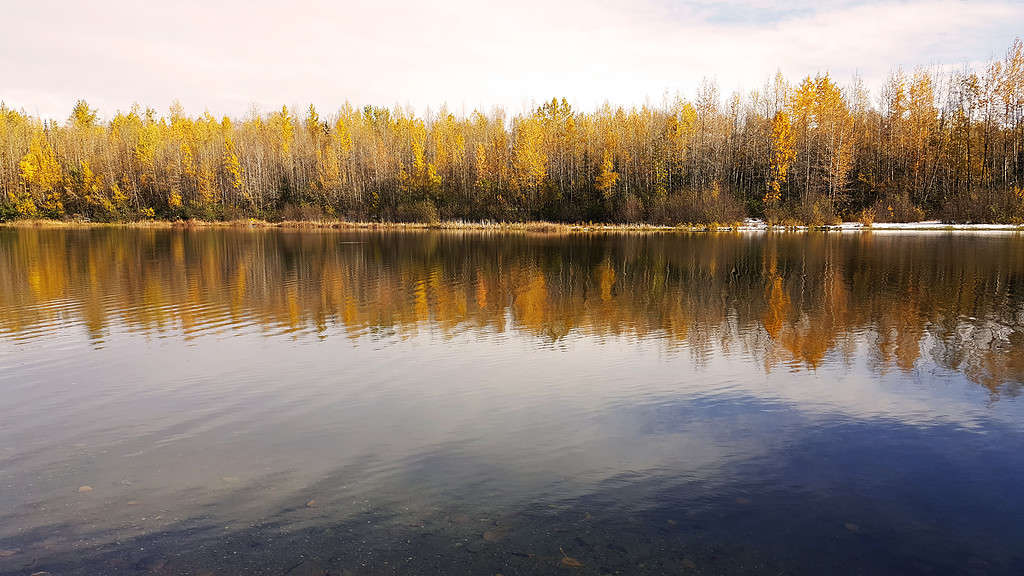
Cheney Lake has about 4-5 months of water, and the rest of the year, it’s completely iced over.
©Beth Wallan/iStock via Getty Images
Like Campbell Lake, Cheney Lake is also in southern Alaska in the town of Anchorage. Cheney Lake usually ices up pretty fast, often completely frozen over by the end of November. The locals often use it as an ice skating rink for a few months of the year. At certain times, the city’s Parks and Recreation Department manages skating on the lake, making sure the ice is thick enough and clear enough for visitors.
Mirror Lake
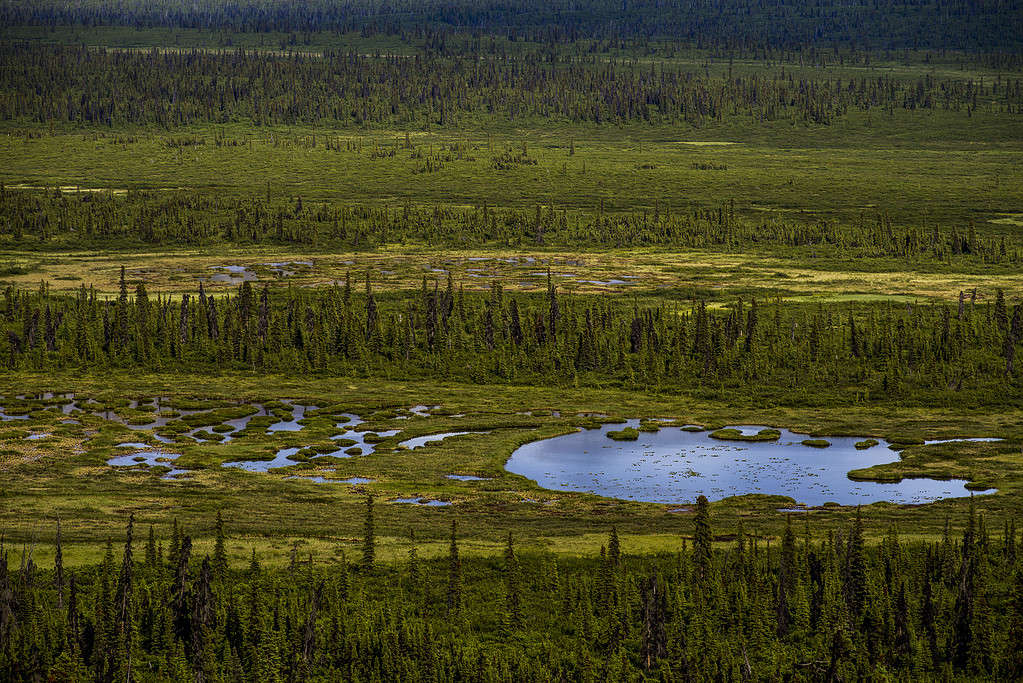
This lake begins to freeze around late October or early November.
©Yitao/iStock via Getty Images
Mirror Lake is also in Anchorage, and it freezes over each year, providing a perfect place for ice skating. There is a skating rink on Mirror Lake for the 2023-2024 ice skating season, however, there is no maintenance on the ice.
You can also ice fish on Mirror Lake, but it’s known to be pretty slow in terms of fishing. The state stocks it every few years, so depending on when you go, your fishing opportunities may look different. People usually ice fish on Mirror Lake from December through March, or as long as the ice remains thick enough to support walking.
Ikmakrak Lake
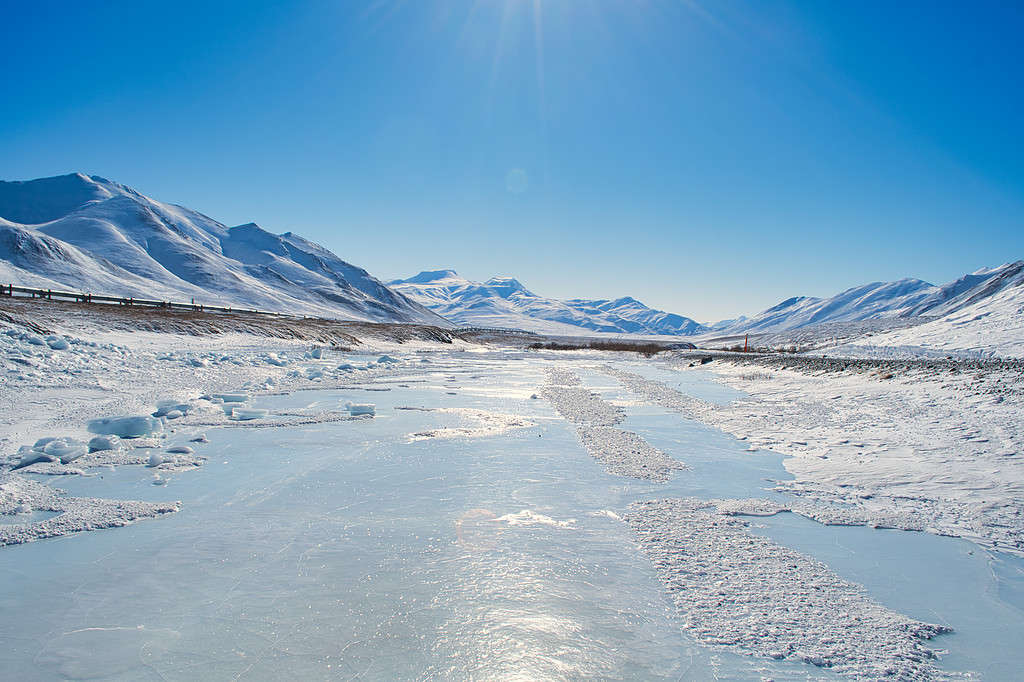
Most places in northern Alaska stay frozen, with snow covering the ground the majority of the year.
©SRIMAN EMANY/iStock via Getty Images
Ikmakrak Lake is located in one of the northernmost towns in Alaska called Atqasuk. Atqasuk is a small town with a population that stays around 200-300. Ikmakrak is a small-to-medium-sized lake, at around 2.5 miles in length. Map images show the lake to be frozen over for most of the year, with a few weeks of water in the summer.
Toolik Lake
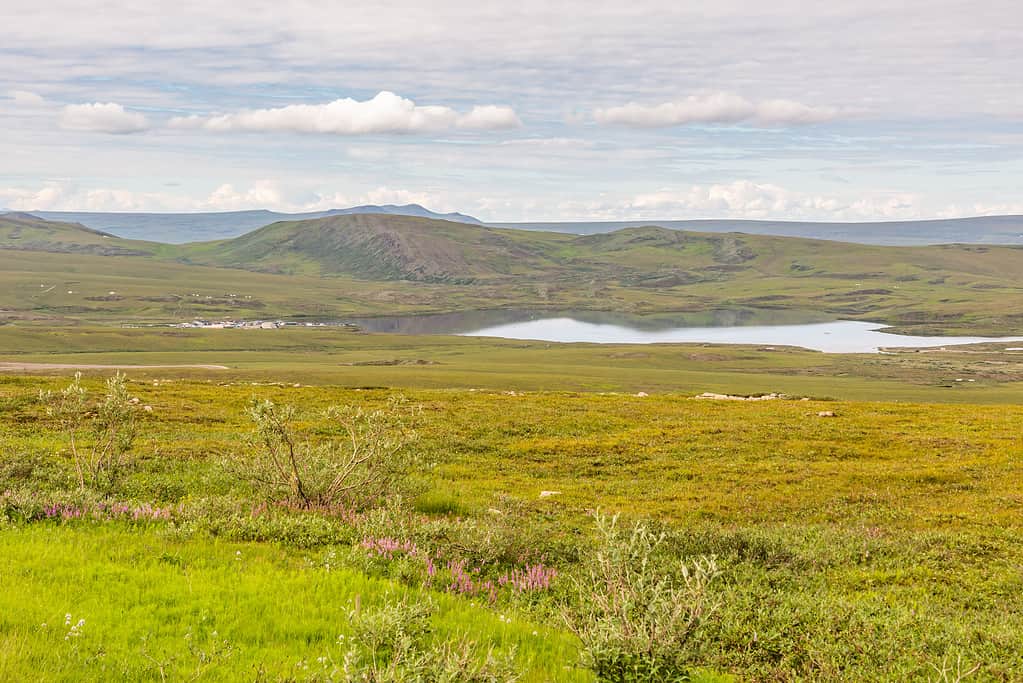
Toolik Lake is a large lake that reaches up to 77 feet deep in some places.
©Shelley Wales/iStock via Getty Images
This Arctic lake is located in northern Alaska, not far from Teshekpuk Lake. It covers 358 acres and is mainly visited for research purposes. The area around the lake is managed by the Bureau of Land Management and dedicated as an Area of Critical Environmental Concern. Toolik Lake usually begins freezing in October and stays solid until at least April.
Summary of Alaska Lakes That Completely Freeze Over in the Winter
| Lake | |
|---|---|
| #1 | Campbell Lake |
| #2 | Teshekpuk Lake |
| #3 | Cheney Lake |
| #4 | Mirror Lake |
| #5 | Ikmakrak Lake |
| #6 | Toolik Lake |
The photo featured at the top of this post is © iStock.com/joshanon
Thank you for reading! Have some feedback for us? Contact the AZ Animals editorial team.




